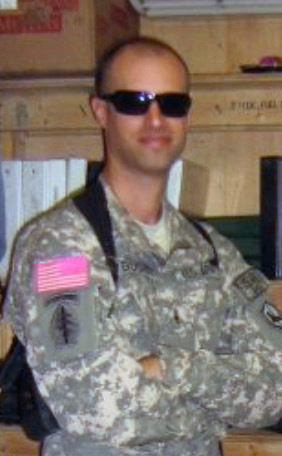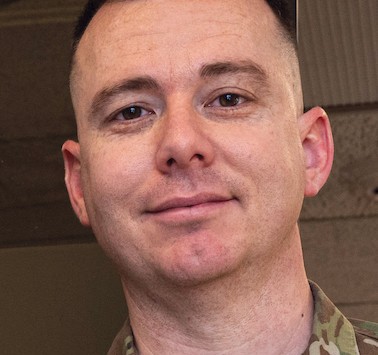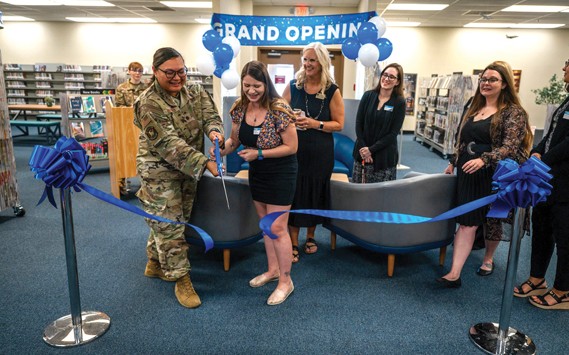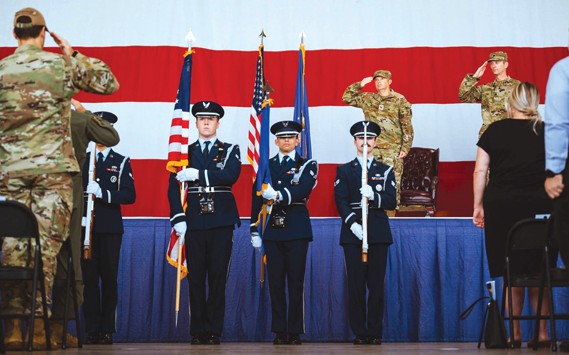Veterans Day honors the men and women who have served in the United States Armed Forces and sacrificed their lives to keep our country safe. Despite a long journey presented with great physical and mental strife, U.S. Army veteran Brady Busby has overcome a lot of adversity and has been able to lead a fulfilling life.
Busby was born May 8, 1974, in Tyler, Texas, but grew up in Mesa, Ariz. He joined the U.S. Army in February 1999 as a private and retired August 2012 as a chief warrant officer 2.
Promptly after the 2001 terrorist attacks, Busby received his first of what would eventually total seven deployments. He deployed to Kosovo on a peacekeeping mission as a short-range air defense leader. This deployment would help provide Busby the resolve needed to endure a career that demanded more time abroad than the average soldier.
Later, while stationed at Fort Gordon, Ga., Busby deployed for the National Security Agency.
“I was attached to the Command Joint Special Forces Operation Group in Iraq,” said Busby. “I worked with both the 10th and 5th Special Forces Groups and their counterparts, like Rangers or Delta. We had taken down some pretty big targets, and I was recognized for being a part of that. Then, by name, I was requested to come back to U.S Army Special Forces.”
After returning to Georgia for Airborne School, the Army assigned Busby to the 10th Special Forces Group in the Military Intelligence Detachment at Fort Carson, Colo. He later deployed to Iraq two more times with the Combined Joint Special Operations Task Force- Arabian Peninsula where he received his commission to chief warrant officer as a subject matter expert in signals intelligence.
Although the Army recognized Busby for his contributions to national defense, the effects of multiple deployments had taken its toll on him.
“After my third tour in Iraq, I was diagnosed with Post Traumatic Stress Disorder,” said Busby. “They just asked me questions like ‘Have you seen things?’ or ‘Was your life in danger?’ stuff like that. We had taken incoming rounds, and I had definitely seen some stuff. They sent me to mental health right away.”
After Iraq, Busby received treatment to help alleviate the mental stress caused by PTSD. The Army then reassigned him to Germany, after which he would wind up deploying three additional times to Afghanistan.
“I was an officer in charge of a small, highly specified military intelligence group that did mostly targeting and things like that,” said Busby. “So there are things that I did that I still think about. The last thing that [set me] off was a mortar round that came in while I was standing outside. I didn’t get pierced by any of the shrapnel, but I came home with those invisible wounds that people can’t see.”
After returning from Afghanistan, Busby worked to address lingering back issues through surgery as well as the invisible wounds of traumatic brain injury and PTSD.
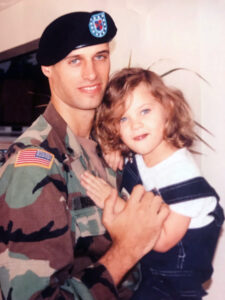
“I was on 80 mg of OxyContin a day at that point,” said Busby. “After my back surgery, I was in a wheelchair for a while. Eventually they medically retired me, but I was still walking with a cane and I was still dealing with mental issues.”
Under doctor supervision, Busby was gradually weaned off 37 medications and began moving toward returning to work. It was then that Busby decided to attend University of Colorado where he studied geography and environmental studies.
Busby explained how returning to an academic environment with a brain injury was one of the hardest things he has ever had to do. However, despite his mental trauma, he earned his bachelor’s degree in December of 2015.
“I’ve taken some pretty hard shots, but I just kept putting one foot in front of the other and took it one day at a time,” said Busby.
After graduation, Busby found his first post-military job; he became a fly fishing guide in Colorado Springs, Colo. He explained how that the love of the outdoors, and this hobby, helped him through his journey.
According to Busby, his family, faith and fly-fishing were the devices he leaned on to help him through his troubled times.
After being a guide for four years, Busby eventually moved back to Arizona to be closer to his family following the loss of his daughter, Ashley.
“Unfortunately, my daughter passed away from suicide two years ago,” he said. “That was extremely hard to deal with. I now have what’s called complex PTSD from some of the images of finding her like that.”
Busby paid tribute to his daughter by writing his first book, “Healing Waters,” a memoir about his life and how he dealt with traumatic experiences through fly fishing.
“It was kind of my way of getting my story down on paper and out of my head,” he said. “I also help with a nonprofit in honor of my daughter called the Ashley Busby Foundation.”
Today, Busby works to share his experiences with other veterans in an effort to help them overcome adversity. He is an active member of a nonprofit organization called Project Healing Waters Fly Fishing, an organization in Arizona that teaches wounded veterans how to fly fish. His efforts have led the Arizona Fly Casting Board to recently nominate him as a board member.
“I’m an outdoorsman,” he said. “Getting outside, and fishing in particular, is something that helped bring me to where I am today. It helps me relax, like my form of mindfulness.”
Busby gave up his job as a fly-fishing guide when he left Colorado, but still fishes quite often. With the help of many nonprofit veteran organizations, he is now able to work remotely from home as a licensed insurance agent in Arizona.
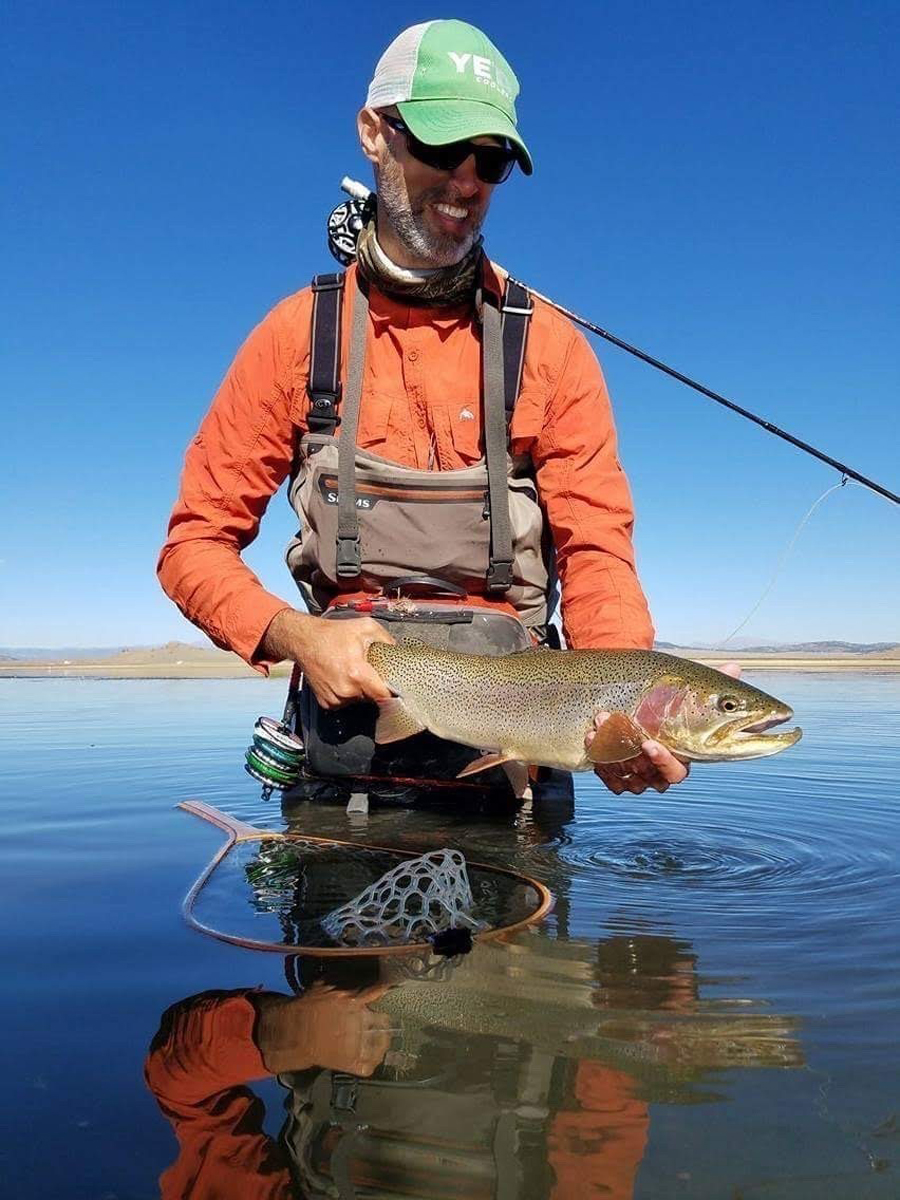
“Wounded Warrior Project’s career counseling program, Warriors to Work, helped me get my resume together and set me up for interviews,” he said. “When they sent me this job lead, I decided to put myself out there and apply for the position. Two weeks later, I studied really hard and I was able to get my license in Arizona for life and health insurance. Now I get to help people, some disabled, save money and get the benefits they need.”
Through his unique experiences, Busby is now able to provide a valuable service to others. He has grown his insurance license and is now able to consult in 17 states across the country from the comfort of his home. Despite his long journey of mental and physical struggles, Brady Busby is back to work and is planning on planting permanent roots in Arizona.
“I have a fulfilling career and I like staying busy,” said Busby. “I’m back home now. I grew up in Mesa and went to Mesa High School. My family is here, and they’re a great support system. I got a lot of help from Wounded Warrior Project and some of the other veteran-oriented nonprofits.”
When asked what veterans should do if they’re facing adversity in their own lives, Busby has simple advice.
“There are a lot of people out there willing to help you get back to work. Just take advantage of it.”
The Wounded Warrior Project has the resources to help support veterans dealing with PTSD and can be contacted at 888-997-2586.






